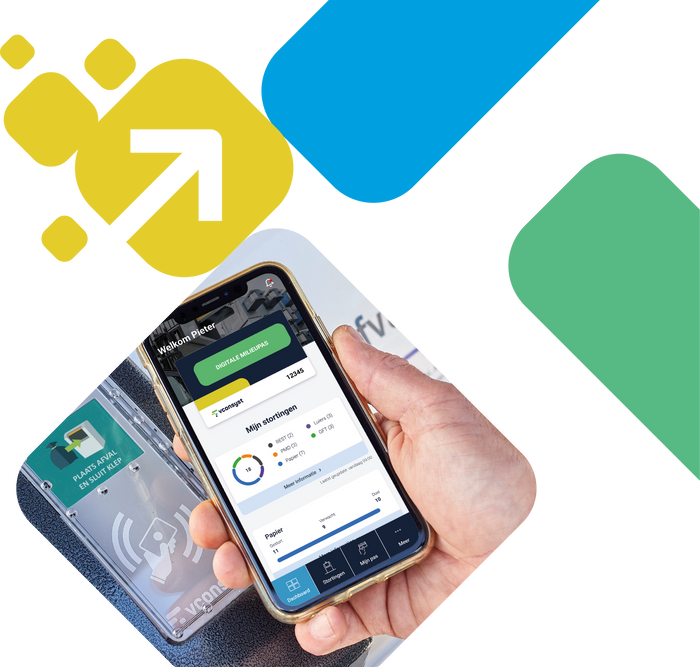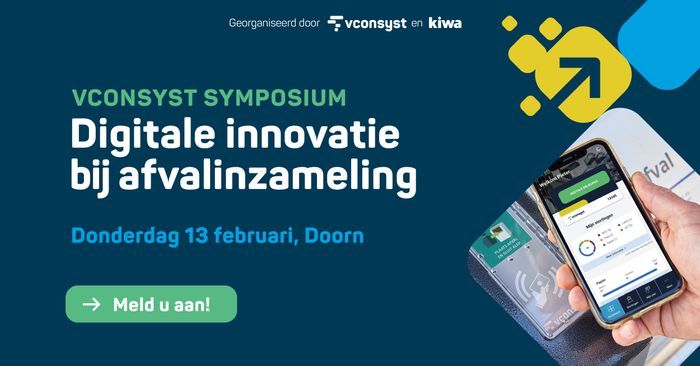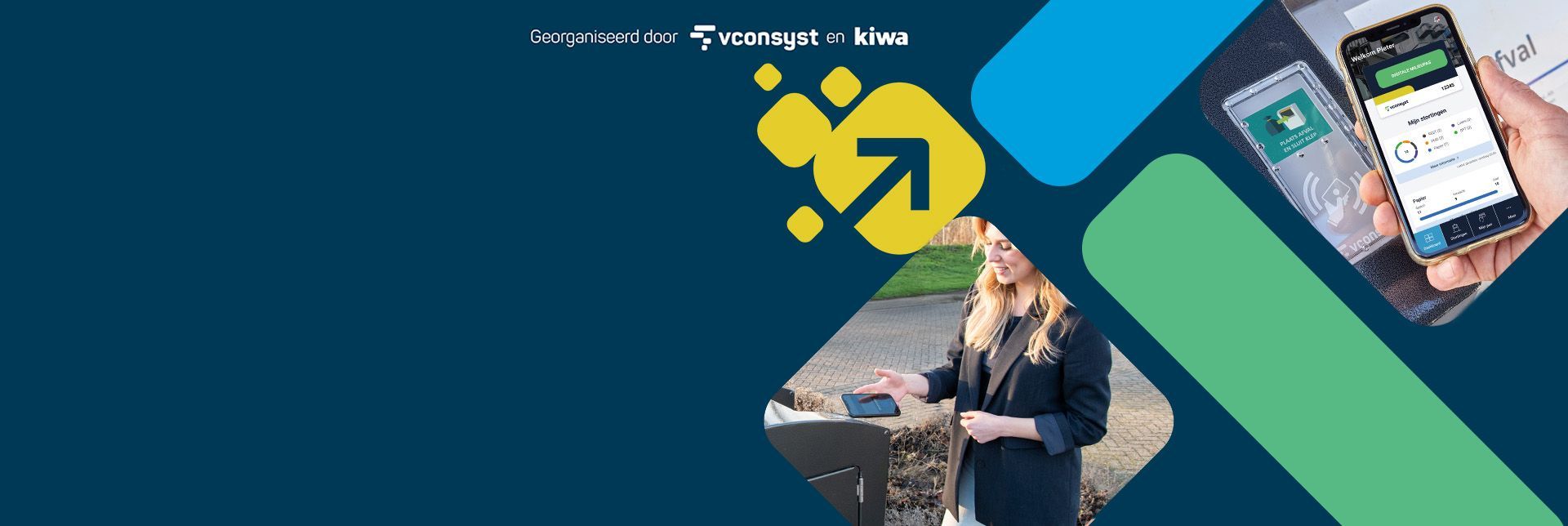VConsyst Symposium for the waste sector
Digital innovation in waste collection boosts circular economy
How does digital innovation help reduce residual waste, change citizen behavior and reuse raw materials? And is there a role for AI? How do municipalities meet the goals of the circular economy in 2030 and 2050? And what do NFC chips and the standard for European digital driving licenses have to do with this?
These topics are the focus of an inspiring symposium by VConsyst and Kiwa for aldermen, policy advisors and heads of waste collection on Feb. 13 in Doorn. Tickets can easily be booked online for this interesting program with speakers and break-outs from NVRD, VNG, HVC, ROVA, Kiwa and a behavioral psychologist.
Circular challenge
The task for the waste sector is great: by 2030 the amount of residual waste must be drastically reduced and by 2050 the economy must be fully circular. VConsyst, specialist in waste collection systems, and Kiwa, expert in certification and inspection, are joining forces to support collection organizations with innovative, digital solutions. Together they are giving a digital boost to influencing behavior through comfort, insight and safe paid waste deposits.
Keynote by AI specialist
In the keynote by Nancy Rademaker, a highly regarded international speaker on digital transformation and AI, we look at the future of AI and its effect on users. In doing so, we aim to inspire the audience to consider what might be possible in the waste sector.

In the pocket of users
John Wösten, CEO of VConsyst, emphasizes the importance of changing behavior and reducing residual waste and clean waste streams. “Municipalities’ resource policies stand or fall with the cooperation of citizens,” concludes Wösten. “By offering users real-time insight through an app, we can influence landfill behavior,” Wösten says. “Benchmarking and direct feedback while people are making a deposit are important factors for behavioral change.”
A digital pass that is easy to integrate into existing or new apps from municipality or waste collector brings the circular economy closer. “With the digital environmental pass you are literally in the pocket of users. A very effective way to influence citizens’ landfill behavior while increasing convenience,” says Wösten.
A common standard
To implement this technology, an internationally recognized standard that works for all underground containers is essential. “That is an important topic for during the symposium. This is something we need to arrange together as a sector,” Wösten believes. “With a standard for digital dumping, we will make waste dumping safer and more convenient.”

Get inspired on Feb. 13
More information and the ability to easily and quickly reserve your spot can be found here. The symposium offers aldermen, policy advisors and management of waste collection companies a lot of useful information and inspiration on the road to 2030.
